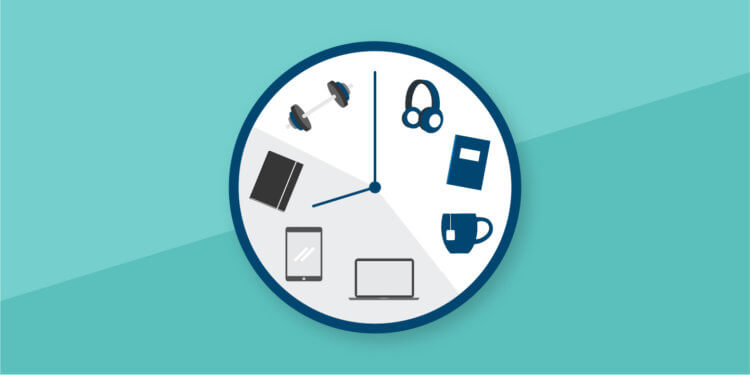How Paralegals Can Lead Innovation
We often talk about how lawyers can better use technology, but what about paralegals? How can paralegals use an innovative approach to get more out of their day and do more of the work they love?
At the 2019 Clio Cloud Conference, we spoke with Lori Gonzales, head of the RayNa Corporation, which helps law firms run more efficiently by taking administrative work off of their plates. Lori is a well-known leader in the legal industry, and had plenty of knowledge to share to help firms.
Teresa:
So what inspired this love of technology, efficiency, and administrative work?
Lori:
I grew up in the legal field, so small and solo firms were my jam for about 15 years, and I worked in some really interesting small firms doing really interesting, different work. So I spent a lot of time doing trial exhibits of 10,000 pages really badly, like really old-school and realized technology had a lot of solutions we just weren’t putting into place. So I think it was a necessity maybe.
Teresa:
And when did you decide to start your own business because of that?
Lori:
About six years ago I actually got laid off from a firm I loved. I thought I would just be the snarky old paralegal in the corner for the rest of my life and when I got laid off, I was pretty devastated by that—and then I realized I could still serve the field in maybe a really new and exciting way. So I decided to try legal billing, and then we’ve just grown into something crazy since then.
Teresa:
How common is this type of business in the legal industry?
Lori:
So I think that we’re legal tech consultants, and I think that you’re certainly seeing a lot more of those now. We also do some really specific admin work. So legal billing is … we actually stopped doing that this year. The majority of that work, it’s a terrible business model. Pretty hard for everybody involved, and there’s actually some great technology that solves these problems. Clio’s part of that.
So that business, it’s not very common for probably a good reason. We’ve recently been working on medical record retrieval, and again, it’s not that common. High-volume admin work is a funny mistress.
Teresa:
Yeah, that certainly makes sense. But again, so there’s not just like this inspirational love of technology, but you’re passionate about the difference that it can make for law firms. So …
Lori:
Yes. So the real reason RayNa Corp. was started was to help lawyers find lost time. Working in law firms, I woke up in the middle of the night worried and stressing about all the things we hadn’t accomplished. I worked 70 or 80 hours a week, and I did not work harder than the lawyers I worked for. That was a really overwhelming, burdensome place to be. And the lawyers that I worked with were … they lived and breathed that every day. And I just knew six years ago—and I’m even more convinced today—that there are better ways for our lawyers who we love to really serve their communities without killing themselves in the process.

Teresa:
Yeah, that sounds good for everyone.
Lori:
Yes. Yes.
Teresa:
So is there a story from a firm that you’ve helped with your work that really sticks with you?
Lori:
So, like all my lawyer friends, I have two stories, I don’t just have one, right? My favorite is my first client. So the first client I ever took on, we really only put in a routine billing process for him. We didn’t do anything fancy. He was already a Clio user. We just helped him use it better and gave him a routine for his firm, and we increased his collected revenue 260% in less than six months. So that’s kind of a crazy number and people always give me the weird eye. But it was that simple. We just mailed his bills for him every month. That’s what we did. That kind of level of process and procedures that were missing in a lot of small and solo firms, because we’re so overwhelmed, is how we can make tons of improvements without some sort of game-changing thing that causes such disruption.
We did the same thing on the medical records side. It’s been fun. I do an experiment every time we want to try something new. So we took a very high-volume personal injury firm in Tennessee. Their average receipt time for medical records when they sent out requests and got them in was 98 days. In less than a year, they doubled their caseload and we took their average receipt time down to 21 days or less. Which has helped them settle cases a month-and-a-half faster, which is big dollars in the personal injury world.
Teresa:
Wow. So with all of those processes, I have to ask: You must not be super surprised to hear the findings from the Legal Trends Report every year.
Lori:
I feel like every year the Legal Trends Report comes out and I go, “Oh yeah, I’m still a genius.” But you know, that’s a little … it is something we see. And the truth is, every law firm knows these numbers. It’s not that I’m a genius. Everyone’s a genius in this field. They know this is happening. They just don’t always know how to solve it. I think. So I’m never surprised by the Legal Trends Report, and in fact I’m excited that we can start using real data to build better solutions.

Teresa:
What were your thoughts on the 2019 report?
Lori:
I’m really excited to hear that we’re talking about how to help law firms scale. I’m actually very upset about this idea of client services, how we’re not doing so well with getting … client facing. I think this is something we talk about in a lot of my circles, not just the legal tech side, but lots of access to the justice side, all of those things. And how the opportunities are just endless for me for a lawyer.
So I’m really excited to see how I haven’t dug fully into the Legal Trends Report. I’m so nerding out about that, and I’m just really excited to see how Clio’s data is going to help law firms move into that next scale. And I think we’ll use it too. We’re Clio users too. So we’re going to use it too.
Teresa:
And why is the work that paralegals and administrative assistants and all the other people who work in a firm and support lawyers do so important when it comes to these things?
Lori:
So I’m super passionate about this in so many ways. I think number one, we forget that admins and paralegals are absolutely the place all legal work starts. Nothing happens until that first document is opened. And that’s usually done by an admin, not a lawyer. But more importantly, admins and paralegals I think spend the most time with clients.
Lawyers come in for the heavy-hitting. But really it’s those front-facing admin and root paralegals who are client-facing and w



